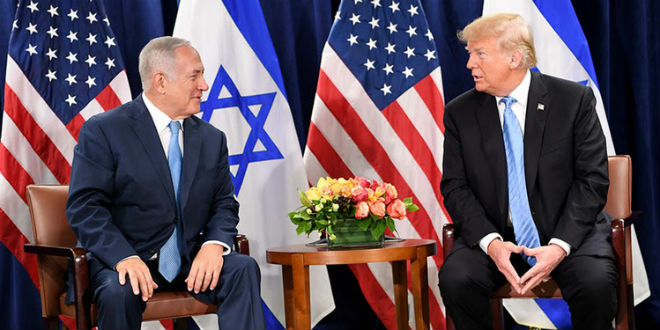President Trump made a surprise announcement on Wednesday that he was ordering the 2,000 U.S troops in Syria to withdraw, fulfilling a campaign promise. The president justified his decision on Twitter by saying that the Islamic State had been defeated.
We have defeated ISIS in Syria, my only reason for being there during the Trump Presidency.
— Donald J. Trump (@realDonaldTrump) December 19, 2018
“We have started returning United States troops home as we transition to the next phase of this campaign,” Sarah Huckabee Sanders, the White House press secretary, said in a statement. Defense Department officials said that Trump had ordered that the withdrawal be completed in 30 days.
Trump’s decision throws the difficult situation in Syria into further disarray bringing into question the future of the anti-ISIS alliance headed by the U.S. France’s Europe Minister Nathalie Loiseau stated to the media that her country is continuing the fight against ISIS, saying, “For now, of course, we are staying in Syria because the fight against Islamic State is essential.”
The British Foreign office made a similar statement saying, “Much remains to be done and we must not lose sight of the threat they pose.”
The U.S. presence in Syria also hindered Iranian dominance in the country that has been weakened by a seven-year civil war. A heavy Russian military presence is propping up the regime of Syrian President Bashar al-Assad while giving a tacit pass to Iran to establish bases in Syria. Iranian dominance in Syria would give them a land-bridge to the Mediterranean, expanding the influence of a regime widely considered to be the largest global sponsor of terrorism.
Russia, also dedicated to wiping out ISIS, supported Trump’s decision.
“If the decision to withdraw was made, then it is a correct one,” Russian President Vladimir Putin said at an end-of-year press conference on Thursday. “As for defeating ISIS, I do generally agree with the President of the United States. We have struck major blows and advances. There are now concerns that those terror groups can infiltrate neighboring countries … and pose a risk to Russia, the US, Europe and Central Asia.”
The U.S. pullout is seen as particularly problematic for Israel which would have to cope with an expanded Iranian presence in Syria. Israeli Prime Minister Benjamin Netanyahu gave a subdued statement after a phone consultation with his friend and ally in the White House.
“This is, of course, an American decision,” he said, adding that no matter what, “we will safeguard the security of Israel and protect ourselves from this arena.”
The U.S. pullout is particularly troubling to the ethnic Kurds in Syria. The U.S. military was working in close alliance with the Syria Democratic Forces (SDF), the military of the ethnic Kurds in Syria who have been instrumental in the fight against ISIS. The SDF released a statement responding to the U.S. announcement, saying the withdrawal would “create a political and military vacuum… leaving its people between the claws of hostile parties,” Turkey, which neighbors Syria and is a NATO member, considers the SDF to be a terrorist organization and has declared its intent to launch a military operation against them.
On Thursday, Turkish Defence Minister Hulusi Akar described his plans for the Kurds in no uncertain terms.
“Right now it is being said that some ditches, tunnels were dug in Manbij and to the east of the Euphrates, he said. “They can dig tunnels or ditches if they want, they can go underground if they want, when the time and place comes they will be buried in the ditches they dug. No one should doubt this.”
On Monday, Turkish President Recep Tayyip Erdogan said the military operation against the YPG would begin soon.
After historic victories against ISIS, it’s time to bring our great young people home! pic.twitter.com/xoNjFzQFTp
— Donald J. Trump (@realDonaldTrump) December 19, 2018
Trump’s decision has not been well received, even by his domestic allies and has been compared to former President Obama’s precipitous withdrawal from Iraq which led to the rise of ISIS. Republican Senator Lindsey Graham, who is one of Trump’s supporters and sits on the armed services committee, called the withdrawal decision a “huge Obama-like mistake,” which would have “devastating consequences” both in Syria and beyond.
Graham and five other bipartisan senators submitted a letter to the president requesting that he reconsider his decision.
Another Republican senator, Bob Corker, who is chair of the foreign relations committee, went further, saying it was “much worse” than Barack Obama’s decision to pull U.S. troops out of Iraq.
“This is a transactional, political decision. It is not a decision based on facts on the ground,” Corker told the BBC. “It is going to harm us, it’s going to harm the people who care about ridding the world of ISIS (IS), it’s harming our relations. It is a colossal mistake and it needs to be reversed.”
A government official told Reuters on Thursday that the White House was considering withdrawing the U.S. air assets being used against ISIS at the same time as the ground troops though a final decision had yet to be made.
The Pentagon released a statement which left the question unanswered.
“As long as there are U.S. troops on the ground we will conduct air and artillery strikes in support of our forces. We will not speculate on future operations,” U.S. Central Command said in a statement.
Officials throughout the Trump administration are bracing themselves for the president to make a similar announcement about the deployment of U.S. troops in Afghanistan.
Source: Israel in the News

